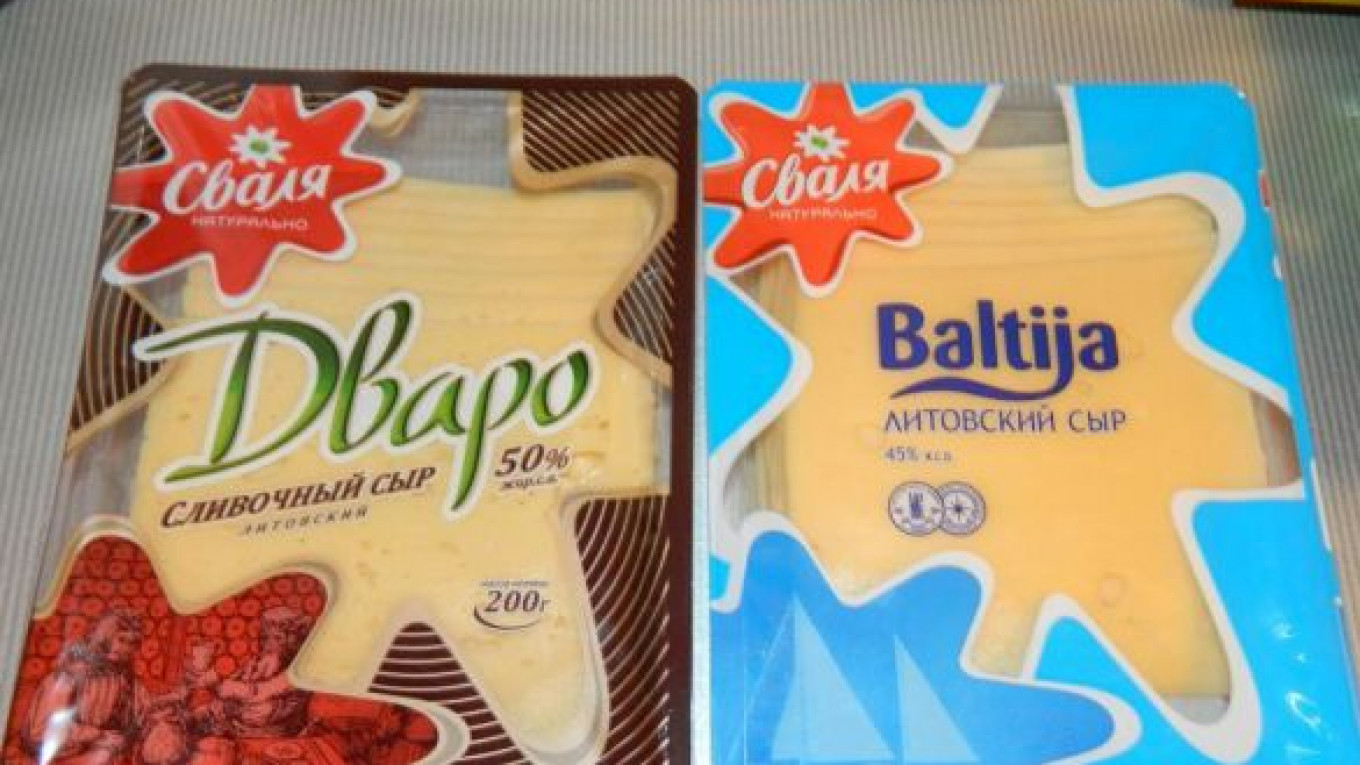Chief Sanitary Inspector Gennady Onishchenko criticized Lithuanian officials for what he called "hysterical" statements about Russia's ban on the country's dairy products this week but said he was ready for any kind of dialogue with Lithuanian colleagues.
Russia suspended dairy imports from Lithuania on Monday without prior notice to the country's government or companies. The decision was made due to the numerous violations of consumer protection and health standards, according to the statement that the Federal Consumer Protection Service released Monday.
European Union officials defended the quality of Lithuanian products, while analysts said the ban could have political motives. Lithuania is chairing the European Commission ahead of a summit in November that could hasten Ukraine's move towards Europe.
Speaking to the Rossia-24 television channel Tuesday, Onishchenko told Lithuanians not to fall into hysteria over their dairy and said he was ready to make a case for the ban in the courts through the World Trade Organization.
"People refuse to understand one thing — we are not paying Lithuania in counterfeit money! Why should our real money pay for faulty products?" Onishchenko said. "Do not scare us with the WTO or the EU!"
He added that European food producers have double standards when it comes to Russia, and send lower-quality items to the east.
The Veterinary and Phytosanitary Inspection Service has also picked up on the issue. Sergei Dankvert, the agency's head, said they may carry out inspections at Lithuanian dairy factories, Interfax reported. The inspections and other issues related to the dairy ban will be discussed with the Lithuanian veterinary chief when he is in Moscow for the Golden Autumn agricultural exhibitions, which start Wednesday.
A leading cheese maker in Lithuania, Rokiskio Surio, has already suspended deliveries of its products to Russia.
Locals are concerned that dairy products will soon increase in price to compensate for the loss of the Russian market, which accounts for 85 percent of Lithuania's dairy exports. The share of Lithuanian dairy products in Russia, on the other hand, is about 1 percent of the total milk consumed in the country, Onishchenko said.
Lithuanians are not the only ones scrutinizing Onishchenko's recent decisions. The official said Tuesday that his agency would not let in 28 wine types that Georgian producers sent in for state registration, which is necessary for access to the Russian market, Interfax reported.
The wine was allowed to come into Russia in June after a six-year ban.
Levan Davitashvili, the head of the wine agency within Georgia's Agriculture Ministry said he was not surprised that some complaints came up, Interfax reported.
"This is natural because each product could be so original that it would not comply with Russian standards," he said.
Davitashvili added that more than 630 types of Georgian alcoholic drinks have already received a seal of approval for their entry into the Russian market and that officials have not received any information about a future ban on supplies.
Contact the author at e.smirnova@imedia.ru
A Message from The Moscow Times:
Dear readers,
We are facing unprecedented challenges. Russia's Prosecutor General's Office has designated The Moscow Times as an "undesirable" organization, criminalizing our work and putting our staff at risk of prosecution. This follows our earlier unjust labeling as a "foreign agent."
These actions are direct attempts to silence independent journalism in Russia. The authorities claim our work "discredits the decisions of the Russian leadership." We see things differently: we strive to provide accurate, unbiased reporting on Russia.
We, the journalists of The Moscow Times, refuse to be silenced. But to continue our work, we need your help.
Your support, no matter how small, makes a world of difference. If you can, please support us monthly starting from just $2. It's quick to set up, and every contribution makes a significant impact.
By supporting The Moscow Times, you're defending open, independent journalism in the face of repression. Thank you for standing with us.
Remind me later.






